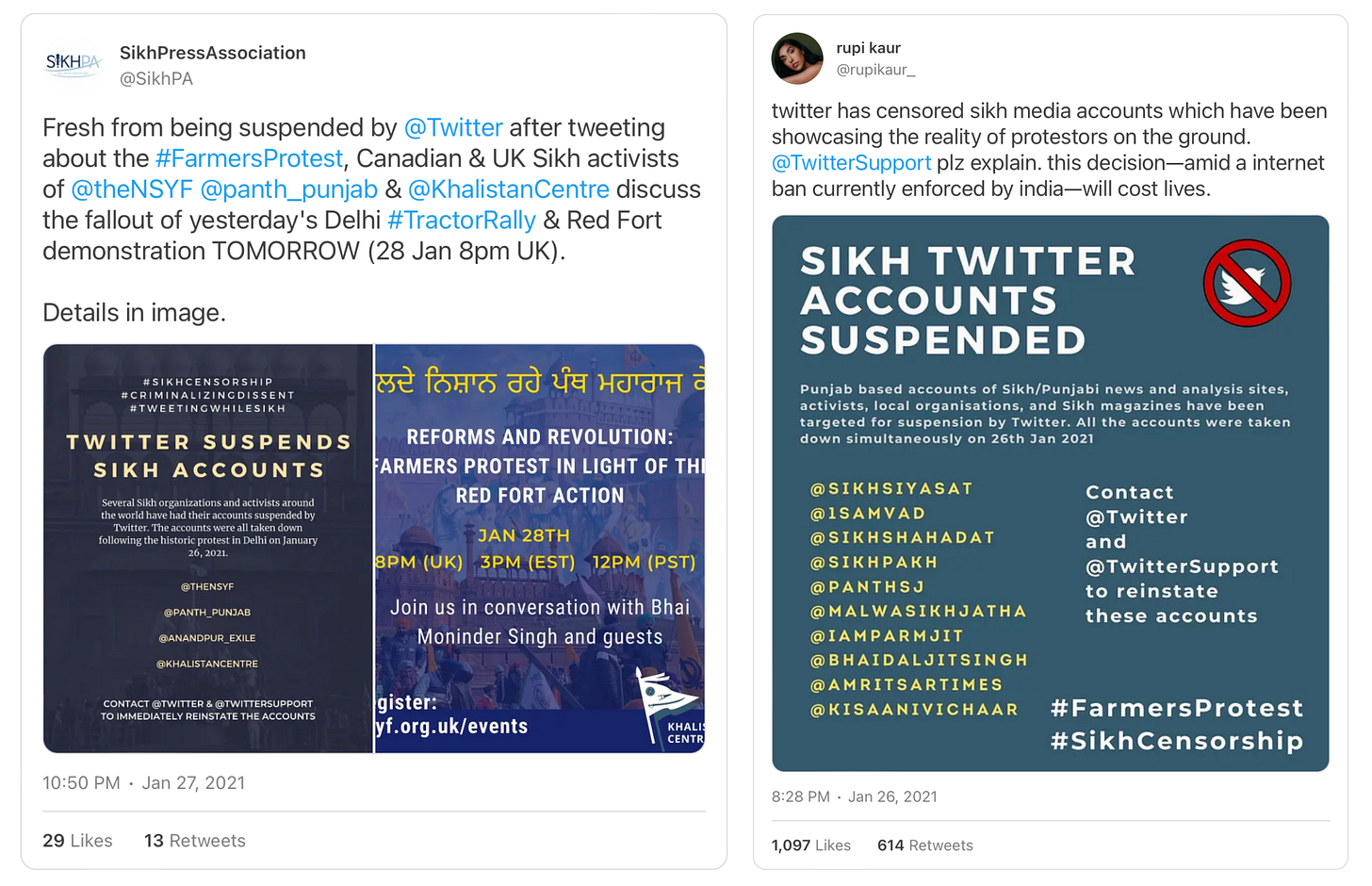Panth-Punjab Project Censored by India
The Panth-Punjab Project emerged during the height of the Kisaan Morcha out of a desire to broaden the conversation around the so-called “reforms”. Through our seminars, articles, and podcast, we facilitated a range of generative conversations with different thinkers in Punjab and the diaspora that uncovered the context that led to the massive upsurge.
As readers familiar with the Panth-Panjab Project know, we underwent a revamp in February of this year. This was partially to pre-empt the censorship that we know Sikhs face from the Indian state. We saw this most clearly on January 26, 2021–and in March 2023–when the Panth-Punjab Project, as well as other prominent Sikh Twitter accounts, were subjected to censorship, with profiles deactivated by Twitter (now ‘X’) or blocked in India altogether.
From the outset of the Panth-Punjab Project, we were familiar with the reality of censorship and repression. This is why we launched in-person projects like a monthly newspaper which has evolved into a quarterly magazine distributed in gurdwaras worldwide. The magazine has allowed us to delve deeper into the themes that root our analysis while creating resources for the sangat that would not be limited to the parameters and vulnerabilities of the virtual world.
Our critical content continues to develop and we’ve built a catalogue of articles that act as a permanent resource for the Panth, in Punjab and beyond.
On October 20th we found that our Twitter profile was entirely censored by the Government of India. Although not surprising, it does come as a blow for our readership, of which a significant portion is in Punjab and other parts of India.
At least two other accounts, that of Jaskaran Sandhu, the founder of Baaz News, and naujawan group, The Undying Morcha, have gone public with censorship notices they received, although there are likely more pages impacted by this most recent wave of notices. These censorship notices show that the Indian government is regularly monitoring Sikh social media activity and using its ‘Information Technology Act, 2000’ to force Twitter into withholding account visibility within the confines of India.
This digital repression is particularly concerning for us, as the Project was conceptualized with a dedicated focus on bridging panthic activism in Punjab and the diaspora/exile by building deep connections with naujawan and experts doing grassroots work in Punjab. Our content has always centred those voices emanating from the ground and finding meaningful ways to engage with them in the diaspora/exile. As a result of this, we have been able to successfully build consistent readership around the world.
It is important to recognize the nature of Indian censorship as a tool of repression against Sikh activists. This social media censorship is used alongside aggressive disinformation campaigns and psyops, as well as the physical repression of Sikh naujawan in Punjab. This tactic stems from India’s desire to stifle critical panthic voices in order to craft hyper-nationalist narratives and ultimately impose its will on Punjab by manufacturing consent and public opinion.
Despite these challenges, our team is committed to ramping up our content and engagement as we wade into this coming phase of history. Going forward, we will be setting up a Telegram Broadcast Channel to circumvent social media censorship by the Indian government. We hope you stay connected with the Panth-Punjab Project as we endeavour to offer unparalleled analysis by linking archive material with new, cutting edge analysis, and an upcoming series of seminars to decode the fault lines underlying current affairs in Punjab today.
Our Sub-stack will remain our primary method of disseminating content to our online subscribers, allowing us to deliver weekly articles directly to your inbox. We also need your help in sharing our substack subscription link with your family and local sangat, and we ask you to consider supporting us to make our work sustainable.
Panth kee jeet!





